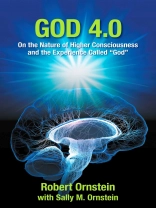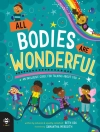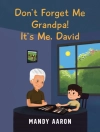A stunning unification of science and tradition for a revolutionary new concept of spirituality to address the challenges of the modern world. The book explores how our ‘everyday’ mind works as a device for selecting just a few parts of the outside reality that are important for our survival. We don’t experience the world as it is, but as a virtual reality – a small, limited system that evolved to keep us safe and ensure our survival. This system, though essential for getting us safely across a busy street, is insufficient for understanding and solving the challenges of the modern world. But we are also endowed with a quiescent ‘second network’ of cognition that, when activated, can dissolve or break through the barriers of ordinary consciousness. We all experience this activation to some degree, when we suddenly see a solution to a problem or have an intuitive or creative insight – when we connect to a larger whole beyond the self. By combining ancient teachings with modern science, we have a new psychology of spiritual experience – the knowledge to explore how this second network can be developed and stabilized. The authors take care to differentiate this development from temporary trance experiences or from overloading the brain with drugs, dancing, drumming or other practices. Instead, they emphasize the need to reflect on and explicate, both individually and collectively, the functional value of virtues such as generosity, humility and gratitude, and of service. These attitudes and activities shift brain function away from the self and toward an expanded consciousness – an experience of the world’s greater interconnectedness and unity and an understanding of one’s place in it. Neither an academic tome nor a religious treatise, God 4.0 is a comprehensive, thoroughly researched work addressed to inquisitive, openminded people genuinely trying to understand life and meaning. It is written for critical thinkers; for readers of news, history, biography and science who seek more from life than is accessible through any one of these disciplines; for people who may find religion as they’ve encountered it to be unsatisfactory. The authors neither advocate nor dismiss organized religion, but contend that knowledge we have now of how higher consciousness happens in the brain allows us to move beyond faith, belief and ritual to a direct experience of self-transcendence, which has been called ‘seeing God.’ Developing this innate second system of perception could be the first step toward finding the vital common ground that reconciles science, religion and spirituality, allowing us to solve our global problems as we work toward a new spiritual literacy and enter a new era – God 4.0.
Daftar Isi
- Second Network’ of consciousness
- Solving today’s problems requires a new ‘spiritual literacy’
- How the brain produces a transcendent shift in consciousness, which many have called ‘seeing God’
- Knowing God as a mode of perception
- How new knowledge about the brain and biological and social inheritance helps reconcile religion and science
- Authentic conscious connectedness is a self-less mode of perception, a connection and solidarity with others
- Role of science in understanding God and consciousness
- Science and the process of decentration and the impact on faith
- The role of virtue as a means of attaining a ‘higher’ more comprehensive consciousness
- Unique human ability to go beyond its biological inheritance and create its own world
- Ordinary consciousness is a virtual reality, each one of us lives in his own ‘world.’ Understanding this can lead to a higher connection, one that no longer rest on tolerance but on a deeper connection
- The virtual ‘small world’ we live in every day is what spiritual teachers have suggested we ‘shun’ – go beyond
- Conscious connection and ability to see the ‘whole’ as the root of human uniqueness and solidarity and the basis for enhanced cognitive process
- Role of brain hemispheres in conscious connection and seeing context
- Conscious connection and human solidarity as the main factor in humanity’s evolution and success as a species
- Flexible connection and cooperation as differentiators from other species
- Social connection as a basic human need
- Social connection and bonding as the beginning of spirituality and the basis of higher consciousness
- Concept of God exists in every known society
- Interpretations of expanded consciousness as the basis for metaphors erroneously taken literally
- Difference between belief and perception
- Ability to shift between different states of consciousness as a human universal
- Understanding the difference between spirituality and emotionality
- Why people reject or ignore the transcendent
- Problem of antiquated language, words such as ‘transcendence’ and ‘mysticism’
- Difference between spirituality and religion
- Spirituality as leaving religious doctrine behind for something ‘beyond’
- Need to either clarify these terms or do away with them
- Difficulty in understanding or accepting ‘oddities’ of experience common to all transcendental experiences
- Impact of cognitive biases along the continuum of open vs. closed borders on one’s beliefs/mindset in many areas of life: rigid vs. fluid; conservative vs. open to change
- Role of genetics in open-closed cognitive styles
- Tendency to cast the discussion in the extremes; neither extreme is the answer
- Extremes of religious belief: illusion/superstition vs. absolute, literal, controlling god
- Nature of the second system: not a physical organ or set of brain cells but a quiescent faculty
- Second system as activated by events or practices that cause a breakup or bypass of normal cognition (e. accidents, drugs, etc)
- Second system as a capacity/faculty that is part of everyone’s natural endowment, developed to varying degrees
- How everyone’s consciousness changes constantly throughout the day
- Education for a new ‘spiritual literacy’
- Why a key subject of our basic, general education needs to be understanding ourselves, our nature, our potential and how to fulfill it.
Tentang Penulis
Considered one of the foremost experts on the brain, Robert Ornstein was an internationally renowned psychologist and author of more than 20 books on the nature of the human mind and brain and their relationship to thought, health, and individual and social consciousness. Perhaps best known for his pioneering research on the bilateral specialization of the brain, Ornstein continually emphasized the necessity of ‘conscious evolution’ and the potential role of the right hemisphere in expanding our horizons to meet the challenges of the 21st century. He taught at Stanford University, Harvard University and the University of California, San Francisco. His books have sold over six million copies worldwide, have been translated into dozens of languages and used in more than 20, 000 university classes. He founded the Institute for the Study of Human Knowledge (ISHK) in 1969 and served as its president until his death in December of 2018.












